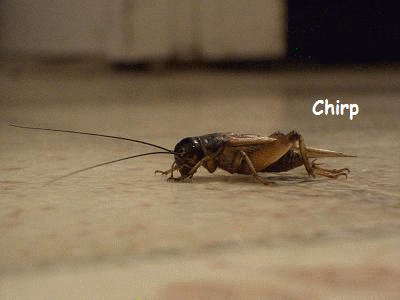Should sugar be controlled like tobacco and alcohol

Minnie2361
Posts: 281 Member
http://arch1design.com/blog/2012/02/should-sugar-be-controlled-like-alcohol-and-tobacco/
According to a team of UCSF researchers it should. They maintain, in a new report, that sugar is fueling a global obesity pandemic, contributing to 35 million deaths annually worldwide from non-communicable diseases like diabetes, heart disease and cancer.
Non-communicable diseases now pose a greater health burden worldwide than infectious diseases, according to the United Nations. In the United States, 75 percent of health care dollars are spent treating these diseases and their associated disabilities.
In the Feb. 2 issue of Nature, Robert Lustig MD, Laura Schmidt PhD, MSW, MPH, and Claire Brindis, DPH, colleagues at the University of California, San Francisco (UCSF), argue that sugar’s potential for abuse, coupled with its toxicity and pervasiveness in the Western diet make it a primary culprit of this worldwide health crisis.
This partnership of scientists trained in endocrinology, sociology and public health took a new look at the accumulating scientific evidence on sugar. Such interdisciplinary liaisons underscore the power of academic health sciences institutions like UCSF.
Sugar, they argue, is far from just “empty calories” that make people fat. At the levels consumed by most Americans, sugar changes metabolism, raises blood pressure, critically alters the signaling of hormones and causes significant damage to the liver – the least understood of sugar’s damages. These health hazards largely mirror the effects of drinking too much alcohol, which they point out in their commentary is the distillation of sugar.
Worldwide consumption of sugar has tripled during the past 50 years and is viewed as a key cause of the obesity epidemic. But obesity, Lustig, Schmidt and Brindis argue, may just be a marker for the damage caused by the toxic effects of too much sugar. This would help explain why 40 percent of people with metabolic syndrome—the key metabolic changes that lead to diabetes, heart disease and cancer—are not clinically obese.
“As long as the public thinks that sugar is just ‘empty calories,’ we have no chance in solving this,” said Lustig, a professor of pediatrics, in the division of endocrinology at the UCSF Benioff Children’s Hospital and director of the Weight Assessment for Teen and Child Health (WATCH) Program at UCSF.
“There are good calories and bad calories, just as there are good fats and bad fats, good amino acids and bad amino acids, good carbohydrates and bad carbohydrates,” Lustig said. “But sugar is toxic beyond its calories.”
Limiting the consumption of sugar has challenges beyond educating people about its potential toxicity. “We recognize that there are cultural and celebratory aspects of sugar,” said Brindis, director of UCSF’s Philip R. Lee Institute for Health Policy Studies. “Changing these patterns is very complicated”
According to Brindis, effective interventions can’t rely solely on individual change, but instead on environmental and community-wide solutions, similar to what has occurred with alcohol and tobacco, that increase the likelihood of success.
The authors argue for society to shift away from high sugar consumption, the public must be better informed about the emerging science on sugar.
“There is an enormous gap between what we know from science and what we practice in reality,” said Schmidt, professor of health policy at UCSF’s Philip R. Lee Institute for Health Policy Studies (IHPS) and co-chair of UCSF’s Clinical and Translational Science Institute’s (CTSI) Community Engagement and Health Policy Program, which focuses on alcohol and addiction research.
“In order to move the health needle, this issue needs to be recognized as a fundamental concern at the global level,” she said.
The paper was made possible with funding from UCSF’s Clinical and Translational Science Institute, UCSF’s National Institutes of Health-funded program that helps accelerate clinical and translational research through interdisciplinary, interprofessional and transdisciplinary work.
Many of the interventions that have reduced alcohol and tobacco consumption can be models for addressing the sugar problem, such as levying special sales taxes, controlling access, and tightening licensing requirements on vending machines and snack bars that sell high sugar products in schools and workplaces.
“We’re not talking prohibition,” Schmidt said. “We’re not advocating a major imposition of the government into people’s lives. We’re talking about gentle ways to make sugar consumption slightly less convenient, thereby moving people away from the concentrated dose. What we want is to actually increase people’s choices by making foods that aren’t loaded with sugar comparatively easier and cheaper to get.”
0
Replies
-
And I always thought it was over consumption..........0
-
:yawn:0
-
No.0
-
No.
QFT0 -
This content has been removed.
-
They can try to control it all they want. People will still be fat because of the overabundance and overconsumption of food.0
-
MORE GOVERNMENT!! WE NEED MORE GOVERNMENT!!0
-
You can get skin cancer from overexposure to the sun, should we also limit sun intake?0
-
So. 8.00 dollars for a bag of sugar you can't buy until you're 21?0
-
*makes picket signs*MORE GOVERNMENT!! WE NEED MORE GOVERNMENT!!0 -
Yes this^ please!MORE GOVERNMENT!! WE NEED MORE GOVERNMENT!!0 -
There should be a logic question that must be answered before every forum post.
This is brilliant. I think it'd cut down on the forum traffic by at least 50% though.0 -
No, just no, and while we're at it, the government shouldn't be in the business of controlling peoples choices. So long as your choices don't adversely, and directly affect another individual, the government should have NO say in what you do. If you want to freebase opium, I say go nuts.
Rigger0 -
 0
0 -
MORE GOVERNMENT!! WE NEED MORE GOVERNMENT!!
LOL +1
Seriously, before federal sugar limits are established. I would prefer to see gov't use farm subsidies to encourage farms to go organic / sustainable.0 -
There should be a logic question that must be answered before every forum post.
This is brilliant. I think it'd cut down on the forum traffic by at least 50% though.
I think you vastly overestimate the intelligence of the general population.0 -
Can you imagine the results...There should be a logic question that must be answered before every forum post. 0
0 -
Yeah cause Sugar is the Devil!!! Ahhhhh!! Run!!!! Run Away!!!! Couldn't have less to do about sugar and more to do with putting the knife and fork down when we have met our caloric intake and nutrient needs for the day.... Just sayin.....0
-
Tl;dr
But at least you cited your source0 -
Only if you go after ALL the foods with sugar. If you go after my snickers bar want to be ID'd for buying tomatoes and beets too.0
-
Somebody pass me the chicken processed in China, my teeth are starting to rot from eating a 5 pound bag of sugar.0
-
I'll ferment it into alcohol. It'll be safer that way.So. 8.00 dollars for a bag of sugar you can't buy until you're 21?0 -
if they think regulating sugar is gonna do it, they need to start next with fast food.
i dont believe in the government being a nanny state. we should be able to regulate ourselves, even if we wanted to eat all the sugar we want.0 -
http://arch1design.com/blog/2012/02/should-sugar-be-controlled-like-alcohol-and-tobacco/According to a team of UCSF researchers it should. They maintain, in a new report, that sugar is fueling a global obesity pandemic, contributing to 35 million deaths annually worldwide from non-communicable diseases like diabetes, heart disease and cancer.
Non-communicable diseases now pose a greater health burden worldwide than infectious diseases, according to the United Nations. In the United States, 75 percent of health care dollars are spent treating these diseases and their associated disabilities.
In the Feb. 2 issue of Nature, Robert Lustig MD, Laura Schmidt PhD, MSW, MPH, and Claire Brindis, DPH, colleagues at the University of California, San Francisco (UCSF), argue that sugar’s potential for abuse, coupled with its toxicity and pervasiveness in the Western diet make it a primary culprit of this worldwide health crisis.
This partnership of scientists trained in endocrinology, sociology and public health took a new look at the accumulating scientific evidence on sugar. Such interdisciplinary liaisons underscore the power of academic health sciences institutions like UCSF.
Sugar, they argue, is far from just “empty calories” that make people fat. At the levels consumed by most Americans, sugar changes metabolism, raises blood pressure, critically alters the signaling of hormones and causes significant damage to the liver – the least understood of sugar’s damages. These health hazards largely mirror the effects of drinking too much alcohol, which they point out in their commentary is the distillation of sugar.
Worldwide consumption of sugar has tripled during the past 50 years and is viewed as a key cause of the obesity epidemic. But obesity, Lustig, Schmidt and Brindis argue, may just be a marker for the damage caused by the toxic effects of too much sugar. This would help explain why 40 percent of people with metabolic syndrome—the key metabolic changes that lead to diabetes, heart disease and cancer—are not clinically obese.
“As long as the public thinks that sugar is just ‘empty calories,’ we have no chance in solving this,” said Lustig, a professor of pediatrics, in the division of endocrinology at the UCSF Benioff Children’s Hospital and director of the Weight Assessment for Teen and Child Health (WATCH) Program at UCSF.
“There are good calories and bad calories, just as there are good fats and bad fats, good amino acids and bad amino acids, good carbohydrates and bad carbohydrates,” Lustig said. “But sugar is toxic beyond its calories.”
Limiting the consumption of sugar has challenges beyond educating people about its potential toxicity. “We recognize that there are cultural and celebratory aspects of sugar,” said Brindis, director of UCSF’s Philip R. Lee Institute for Health Policy Studies. “Changing these patterns is very complicated”
According to Brindis, effective interventions can’t rely solely on individual change, but instead on environmental and community-wide solutions, similar to what has occurred with alcohol and tobacco, that increase the likelihood of success.
The authors argue for society to shift away from high sugar consumption, the public must be better informed about the emerging science on sugar.
“There is an enormous gap between what we know from science and what we practice in reality,” said Schmidt, professor of health policy at UCSF’s Philip R. Lee Institute for Health Policy Studies (IHPS) and co-chair of UCSF’s Clinical and Translational Science Institute’s (CTSI) Community Engagement and Health Policy Program, which focuses on alcohol and addiction research.
“In order to move the health needle, this issue needs to be recognized as a fundamental concern at the global level,” she said.
The paper was made possible with funding from UCSF’s Clinical and Translational Science Institute, UCSF’s National Institutes of Health-funded program that helps accelerate clinical and translational research through interdisciplinary, interprofessional and transdisciplinary work.
Many of the interventions that have reduced alcohol and tobacco consumption can be models for addressing the sugar problem, such as levying special sales taxes, controlling access, and tightening licensing requirements on vending machines and snack bars that sell high sugar products in schools and workplaces.
“We’re not talking prohibition,” Schmidt said. “We’re not advocating a major imposition of the government into people’s lives. We’re talking about gentle ways to make sugar consumption slightly less convenient, thereby moving people away from the concentrated dose. What we want is to actually increase people’s choices by making foods that aren’t loaded with sugar comparatively easier and cheaper to get.”
Sugar consumption also peaked 1999-2000 or right around there and has been declining...
And LOLstig?0 -
I think I need to go buy up a whole bunch of sugar so I can become rich when this happens.0
-
 0
0 -
 0
0 -
MORE GOVERNMENT!! WE NEED MORE GOVERNMENT!!
Yes! I still come across situations where I have to think for myself. :grumble:0 -
LOLLLLLLLL
Alcohol and tobacco have no biological necessity. Sugar has nutritional value. If someone asked me for ID for the gummy bears I consume in the middle of a training run I would go apeshiz on them, very weakly because I'm glucose depleted.0 -
The problem is over population, which is leading to an exponentially larger number of stupid people in the world who use zero common sense and don't take any accountability for what they do/consume. The obesity pandemic is just evolution at work. Somehow I managed to get un-obese with sugar being a readily available and uncontrolled substance.
I put down the 32 oz big gulps and started getting my nutrition and fitness on...it was pretty easy and mostly a lot of common sense changes that did it for me.0
This discussion has been closed.
Categories
- All Categories
- 1.4M Health, Wellness and Goals
- 398.2K Introduce Yourself
- 44.7K Getting Started
- 261K Health and Weight Loss
- 176.4K Food and Nutrition
- 47.7K Recipes
- 233K Fitness and Exercise
- 463 Sleep, Mindfulness and Overall Wellness
- 6.5K Goal: Maintaining Weight
- 8.7K Goal: Gaining Weight and Body Building
- 153.5K Motivation and Support
- 8.4K Challenges
- 1.4K Debate Club
- 96.5K Chit-Chat
- 2.6K Fun and Games
- 4.8K MyFitnessPal Information
- 13 News and Announcements
- 21 MyFitnessPal Academy
- 1.6K Feature Suggestions and Ideas
- 3.2K MyFitnessPal Tech Support Questions



















